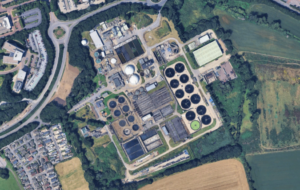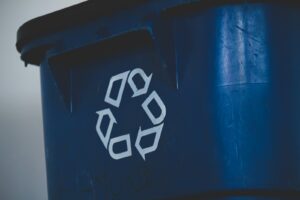Scientists at the University of Hull are developing a new biodegradable plastic as part of a £1.1m project investigating plastics in the economy and environment.
A team of over 25 academics from the University will work with a wide range of companies and other organisations to investigate how these new plastics, along with new ways of recovering and recycling plastics, can be adopted.
The project will use staff and students at the University as a test-bed for public attitudes to new plastics and will consider the potential social and environmental impacts of the material.
The research will include a significant number of non-academic organisations, including business, supermarkets, local government and recycling companies.
Along with University experts, they will be contributing to a new understanding of how the plastics circular economy works today, and helping explore new ideas and solutions.
Professor Carl Redshaw, who is co-leading the project, is an expert in chemistry and catalyst design for biodegradable polymers, will work on developing a new range of biodegradable plastics.
He said: ‘The scale of plastic waste in the environment and the resilience of the fossil-derived polymers used for its creation are unsustainable.
‘Current levels of reliance on the use of plastics make this a significant challenge both in terms of needing specific breakthroughs in materials and chemical engineering, alongside the need to change behaviours necessary to move beyond single-use fossil-derived disposable plastics. It takes 400 years for a plastic bag to degrade in a UK landfill.
As part of the project, chemical engineers from the University will also look at the development of commercially viable reprocessing methods for depolymerisation and regeneration of useful chemicals derived from post-use plastic waste, which can be used in new consumer plastics.
Dr Pauline Deutz, co-lead of the project, said: ‘Plastic has changed the way we live. It has become an essential part of the global economy to such an extent, that there is now a crisis of control.
‘We need new ways of thinking about the problems of plastic use. The circular economy, which emphasises design for environmental protection and minimisation of waste, offers some important approaches.’
The funding for Hull is one of eight new research projects worth £8m that will explore new and different ways of making, using and recycling plastics announced today by the Science Minister, Chris Skidmore.
Designing-out Plastic Waste, led by University College London, will create a new bacteria-based recycling technology for plastics that will consume plastics, breaking them down into reusable material. A new Plastics Waste Innovation Hub will also be created at the University, bringing together researchers and businesses to consider new and innovative methods to recycle plastics.
Rethinking Resources and Recyclingled by The University of Manchester will develop graphene membrane filters for the removal of micro-plastics in water and a new chemical-method of recycling contaminated and mixed soft plastic materials.
















